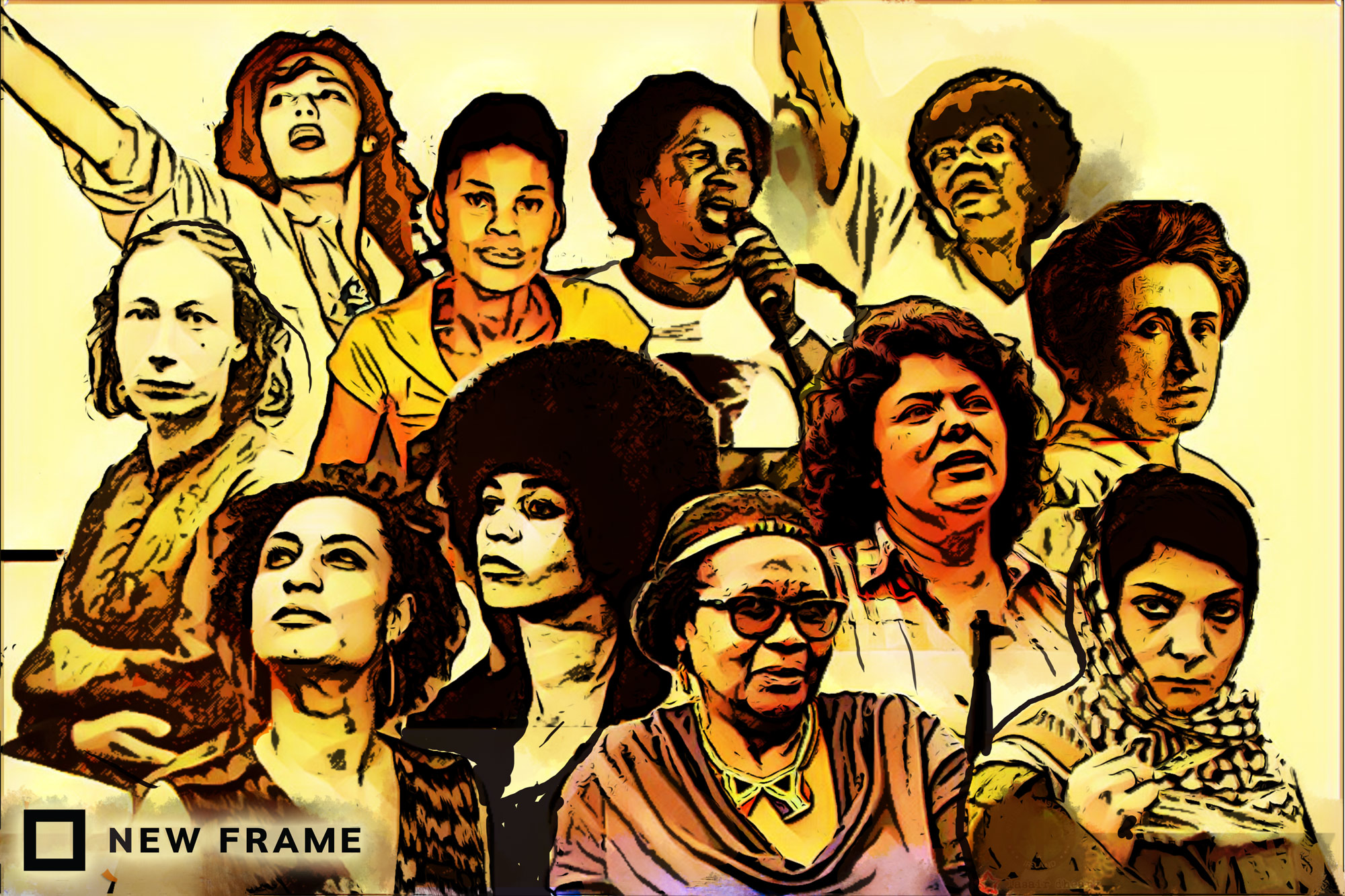Women under fire
As International Women’s Day approaches, we need to affirm the right of women – all women – to full and free participation in the public sphere.
Author:
5 March 2021

The Odyssey, an epic poem composed in ancient Greece and attributed to the poet Homer, has been dated as far back as 700 years before the date Christians give for the birth of Jesus of Nazareth.
As feminist critics have noted, early in the poem Penelope, the wife of Odysseus, the heroic figure in the poem, comes down from her private space and into the public space of the great hall. She speaks, requesting a happier song than the one being played. Her son, Telemachus, swiftly interjects, telling his mother to “go back up into your quarters, and take up your own work, the loom and the distaff … speech will be the business of men, all men, and of me most of all; for mine is the power in this household.”
Patriarchal power has used many mechanisms over the centuries to confine women to the domestic sphere. These have frequently included injunctions to obedience issued in the name of culture, sexual morality, motherhood and religion. Political women have often been subject to particularly intense forms of control, including slander, violence, rape and murder.
The 150th anniversary of the Paris Commune, a democratic urban insurrection that inspired political experiments around the world, is celebrated on 18 March. The women who participated in the Commune were slandered, hysterically, as les pétroleuses, a reference to what were later called Molotov cocktails. The pétroleuses were not only falsely said to have burnt down much of Paris, they were also said to be drunk and filthy, disparaged as promiscuous and often described as “wild animals”. Novelist and poet Arsène Houssaye wrote that “with a kick to their skirts we should cast into the hell of malediction all these horrible creatures who have dishonoured women in the saturnalias and impieties of the Commune”.
Assassinations
The fifth anniversary of the assassination of Berta Cáceres was this week, on 2 March. Cáceres, a grassroots activist in Honduras, was best known for organising against a World Bank-backed dam on the Gualcarque River. A leader of the Lenca people, she was a committed anti-capitalist. “Capitalism,” she famously asserted, “is the complete opposite to life, to the environment, to human beings, to women. We need to end capitalism to save the world and humankind.”
Cáceres was subject to years of slander, sexual harassment and death threats prior to her assassination. A former Honduran military intelligence officer who trained at the West Point military academy in the United States has been charged with planning her murder.
She is one of a number of high-profile women activists who have been assassinated in recent years.
Related article:
The third anniversary of the assassination of Marielle Franco falls on 14 March. Franco, a municipal councillor in Rio de Janeiro, Brazil, was a well-known socialist, feminist activist and critic of police violence. Gauri Lankesh, a socialist, feminist activist and journalist in India, was assassinated on 5 September 2017.
Grassroots women activists have also been assassinated in South Africa. Anti-mining activist Fikile Ntshangase was murdered in her home in Ophondweni near Mtubatuba in northern KwaZulu-Natal on 22 October last year. Thuli Ndlovu, a leader in Abahlali baseMjondolo, was assassinated in her home in KwaNdengezi, Durban, on 29 September 2014.
As in India and the US, women in South Africa who take on powerful men in the public sphere are routinely subject to brutal forms of public trolling, slander and more private rumour-mongering.
International Women’s Day
International Women’s Day is celebrated next week, on 8 March. The roots of this annual celebration stretch back to the mid-19th century. Garment workers in New York struck and marched on 8 March 1857, demanding better working conditions, a 10-hour workday and equal rights for women. Police officers attacked them.
On 8 March 1908 fifteen thousand women, most of them workers in the needle trades and many of them immigrants, marched through New York City demanding better pay, shorter working hours, an end to child labour and the right to vote. The following year, the Socialist Party of America proposed a national women’s day.
At the 1910 Conference of Working Women in Copenhagen, Denmark, German communist Clara Zetkin proposed that the women’s day be marked internationally. This idea was taken up in Europe, and a million women took to the streets the following year.
Related article:
Tens of thousands of women gathered in the centre of Petrograd, the Russian capital, on International Women’s Day in 1917 under the banner of bread and peace. They were joined in the afternoon by women textile workers who marched out of the factories. It was the first day of the Russian Revolution. After the revolution, International Women’s Day was made a national holiday. The day was observed by the United Nations for the first time in 1975.
Today, International Women’s Day is observed in more than 25 countries, including Angola, China, Germany and Zambia. In some countries, including the US, March is celebrated as women’s month.
It is important to recall the radical origins of this increasingly international commemoration in a time in which, in the elite public sphere, feminism is often reduced to professional success and high-level participation in systems of oppression.
Women’s political agency
Women’s political agency was central to the major events that made the modern world, including the revolutions in France, Haiti and Russia, anti-colonial struggles across the planet and the civil rights struggle in the US.
It is important to recall the names of the women militants who bent history towards their rebellious desires: Rosa Luxemburg in Germany, Djamila Bouhired in Algeria, Angela Davis in the US, Leila Khaled in Palestine, Victoria Mxenge in South Africa and so many, many others – many of them jailed, tortured or murdered.
But we also need to recall the working-class women whose contribution is often forgotten, people like trade unionist and community activist Jabu Ndlovu, whom Inkatha murdered in Pietermaritzburg in 1989. And those women whose names are not even footnotes in history. The women who took to the streets in Paris, New York and Petrograd, the women who fought in the revolutions in Haiti and Algeria, the women who carried men like Martin Luther King into the elite public sphere and into history.
Related article:
A global view of popular politics today shows that from Bolivia to Haiti and Venezuela, women are central to the constitution of contemporary forms of popular counter-power. The most impressive and important political experiments in the detritus of our failed revolution are largely organised and carried by women. There will be no path out of our national crisis, or the global crisis, without the political empowerment of women in a progressive popular politics.
With appalling reactionary leaders in countries such as India, Brazil and Hungary – and the US still reeling from the Donald Trump years – as well as increasingly organised forces of reaction within societies across the world, it is vital that the right of women to appear and participate freely in the public sphere is defended day by day and inch by inch. And that struggle must always be acutely aware that it is women who are racialised, considered low caste or who are gender non-conforming, working class or impoverished who are most at risk of patriarchal reaction – of slander, harassment, abuse, torture and murder.
From Twitter to the factory floor, the shack settlement and the village, a line must be drawn and held.



